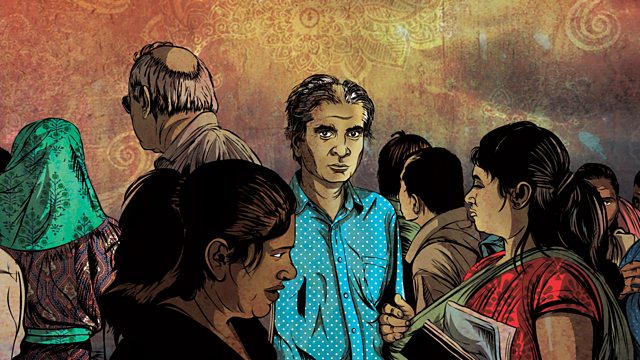Omnibus Series 1 Episode 5
Professor Sunil Khilnani presents audio portraits of William Jones, Rani of Jhansi, Jyotirao Phule and Birsa Munda.
An omnibus edition of Professor Sunil Khilnani's audio portraits of figures that have shaped the arc of Indian history over two thousand years.
Professor Khilnani begins with a study of one of the founding fathers of the study of Asia by the West. Sir William Jones set sail for India at the end of the 18th century where he became one of the greatest advocates for studying the glories of India's past. Already a master of many languages, he learned Sanskrit which he declared "more perfect than the Greeks, more copious than the Latin and more exquisitely refined than either". With a recital of an Indian composition on harpsichord, from the Oriental Miscellany by Jane Chapman.
His next subject is Lakshmibai, Rani of Jhansi, the queen who fought against the British and became a heroine of India's 1857 Rebellion. 'She was certainly no ordinary queen," he says. She was listed by Time Magazine as one of its 'Top Ten Badass Wives'. A typical day for Lakshmibai involved weightlifting, wrestling and steeplechasing - all before breakfast. Yet, despite her physical prowess, she was a reluctant rebel. She was drawn into the uprising only when the British annexed Jhansi after her husband died. The legend goes that, when the Rani's fort was under siege from the British, she mounted her horse, her young son holding on tight behind her, and leapt to freedom from the ramparts.
His next portrait is of the social reformer and anti-caste campaigner Jyotirao Phule who set out to educate women and promote the cause of the lower-caste members of Indian society. Phule and his wife were castigated for challenging the caste system. In a defiantly symbolic act, he allowed all comers to drink from the well at his house, in an age when members of the lower castes were barred from drinking water used by the upper castes. Today there are many government funding schemes for schools which bear either Phule's or his wife's name but discrimination against the Dalits, then known as Untouchables, hasn't gone away. "Phule wanted to rock the system," says Professor Khilnani "not just to create tiny islands of equality".
Professor Sunil Khilnani ends with a profile of Birsa Munda, the young, charismatic healer who led his tribal community in revolt against the British and whose life, more than a century after his death, poses the question: 'Who owns India?' Scattered across the subcontinent, India's tribal peoples or Adivasis, match in size the populations of Germany or Vietnam. Yet the land rights of India's original inhabitants are regularly overridden in the name of development. One of history's great defenders of Adivasi rights was Birsa Munda, born in the late 19th century in what is now the north-eastern state of Jharkhand. At a time of famine and disease across northern India his community looked to the Birsa for healing and leadership. The young man who claimed he could turn bullets to water led a rebellion against the British, their Indian middlemen and Christian missionaries.
Listeners can catch up with the series and see the list of remarkable Indians featured in the series on the Radio 4 website.
Produced by Mark Savage and Jeremy Grange.
Last on
Broadcast
- Fri 25 Nov 2016 21:00麻豆社 Radio 4
Remarkable individuals who shaped India, and sometimes the world.
Incarnations - The Podcast
Download all the episodes from the series and listen at your leisure.
Incarnations: Art and Music
The artists who created the illustrations and music for the series.
Podcast
-
![]()
Incarnations: India in 50 Lives
The history of India told through the lives of 50 phenomenal people.



